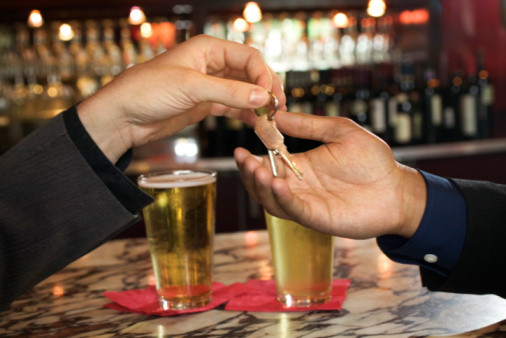Restaurants, bars and their customers obligated to set limits on intake

As Charleston and the Lowcountry get more attention as a popular destination, the number of restaurants and bars has mushroomed, creating even more opportunities to overindulge. We've seen the tragic results of that in our community and saw the same in a recent case we handled when our client was injured by a drunk driver after the driver left a restaurant intoxicated. The settlement in the case held that in addition to the drunk driver, the restaurant that served the driver was also responsible. The driver, who was declared dead at the scene, had a blood alcohol content estimated to be .24, three times the legal limit, at the time of the accident. Receipts showed that she had at least four glasses of wine and several double gin drinks over a four-hour period. Nationally-adopted restaurant policies and the law state that a restaurant should not serve alcohol to a customer who appears intoxicated or if the amount consumed indicates they are likely intoxicated. The injured man was on his way home when he saw the drunk driver's car come toward him, run off the road, over-correct, and then hit him head-on. He was critically injured, incurring nearly $400,000 in medical bills, and was left with significant disabilities that now restrict him to part-time sedentary work. He was 41 years old at the time, married with a child, and employed. He also worked as the volunteer fire chief for his rural community but is no longer able to do so. In the end, the experts brought in for the case showed that the drunk driver had responsibility, but the restaurant also contributed to the accident. They continued to serve a patron who was clearly impaired, over the course of several hours, and then let her get on the road. It's a lesson for all of us that we have a responsibility to help avert a crisis if we see the potential for one to occur. In this case, the restaurant also had a legal responsibility to stop serving and it didn't. Fortunately, after initial depositions, a swift move to mediation prevented the victim from the further trauma of a lengthy trial and resulted in a quick settlement for the injured man and his wife. While that helps with the bills, a death, the injuries and all of that trauma didn't have to happen. It's a warning both for those serving and for those being, potentially, over-served. Both sides of the table should know their limits and stay within them.
Contact Us
Clore Law Group welcomes your questions about any issues concerning a serious personal injury, car accident, medical malpractice, nursing home neglect, or business tort. If you have a viable claim, we’ll explain the legal process. Since consultations are always free, there’s no cost in learning your legal options.